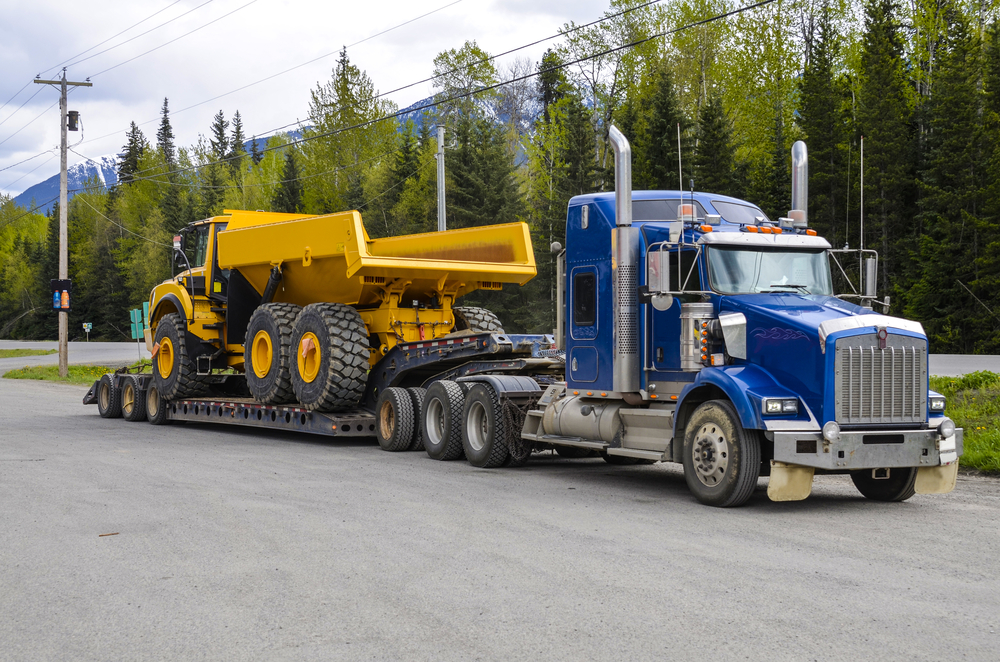
What Is Fishtailing And Why Does It Happen When Towing A Low Loader Trailer?
What is fishtailing?
A fishtail is when the trailer of a low loader begins to swing from side to side. This can be caused by a number of factors but is most often due to improper loading or unbalanced loads. Fishtailing can be dangerous and can cause the load to shift or even fall off the trailer. It is important to avoid fishtailing and to correct it if it does occur.
There are several things that can cause a low-loader trailer to fishtail. One is an unbalanced load. If the load is not evenly distributed, it can cause the trailer to swing from side to side. Another cause is improper loading. If the load is not secured properly, it can also cause the trailer to fishtail. Finally, wind can also cause a low loader trailer to fishtail. If the wind is strong enough, it can push the trailer from side to side.
Fishtailing can be dangerous and can cause the load to shift or even fall off the trailer. It is important to avoid fishtailing and to correct it if it does occur. There are several things that can be done to avoid fishtailing.
First, make sure that the load is evenly distributed. Second, make sure that the load is properly secured. Third, be aware of the wind conditions. If the wind is strong, it may be necessary to reduce speed or even stop. Finally, if fishtailing does occur, it is important to correct it immediately.
Why does it happen when towing a low-loader trailer?
When towing a low-loader trailer, the trailer can start to fishtail if the towing vehicle goes too fast around a corner, if the trailer is overloaded, or if the trailer is not properly secured to the towing vehicle. Fishtailing occurs when the trailer starts to swing out from behind the towing vehicle and can be a very dangerous situation.
If the towing vehicle goes too fast around a corner, the trailer can start to swing out. This is because the trailer is not being pulled straight behind the towing vehicle, but is instead being pushed to one side. The best way to avoid this problem is to slow down when taking corners.
If the trailer is overloaded, it can also start to fishtail. This is because the trailer is heavier than the towing vehicle, and the weight of the trailer can cause it to swing out. To avoid this, make sure that the trailer is not overloaded.
If the trailer is not properly secured to the towing vehicle, it can also start to fishtail. This is because the trailer can come loose from the towing vehicle, and the weight of the trailer can cause it to swing out. To avoid this, make sure that the trailer is properly secured to the towing vehicle.
How to prevent fishtailing when towing a low-loader trailer
When towing a low-loader trailer, there are a few things you can do to prevent fishtailing. First, make sure the trailer is properly loaded. The trailer should be balanced so that the load is evenly distributed. If the trailer is overloaded or unbalanced, it will be more likely to fishtail.
Second, adjust the trailer’s hitch so that it is level with the ground. This will help keep the trailer from fishtailing. Third, drive slowly and carefully when towing the trailer. If you take corners too sharply or brake too suddenly, the trailer could fishtail. Finally, be aware of the weather conditions. If it is windy or rainy, the trailer will be more likely to fishtail. If you take these precautions, you should be able to prevent fishtailing when towing a low-loader trailer.
Conclusion
Fishtailing is a dangerous condition that can occur when towing a low-loader trailer. It happens when the trailer starts to swing from side to side, and can quickly lead to a loss of control.
Fishtailing can be caused by a number of factors, including incorrect loading, uneven tire pressure, or a high centre of gravity. It’s important to be aware of the risks of fishtailing and to take steps to avoid it, such as ensuring the trailer is properly loaded and checking tire pressure frequently.



